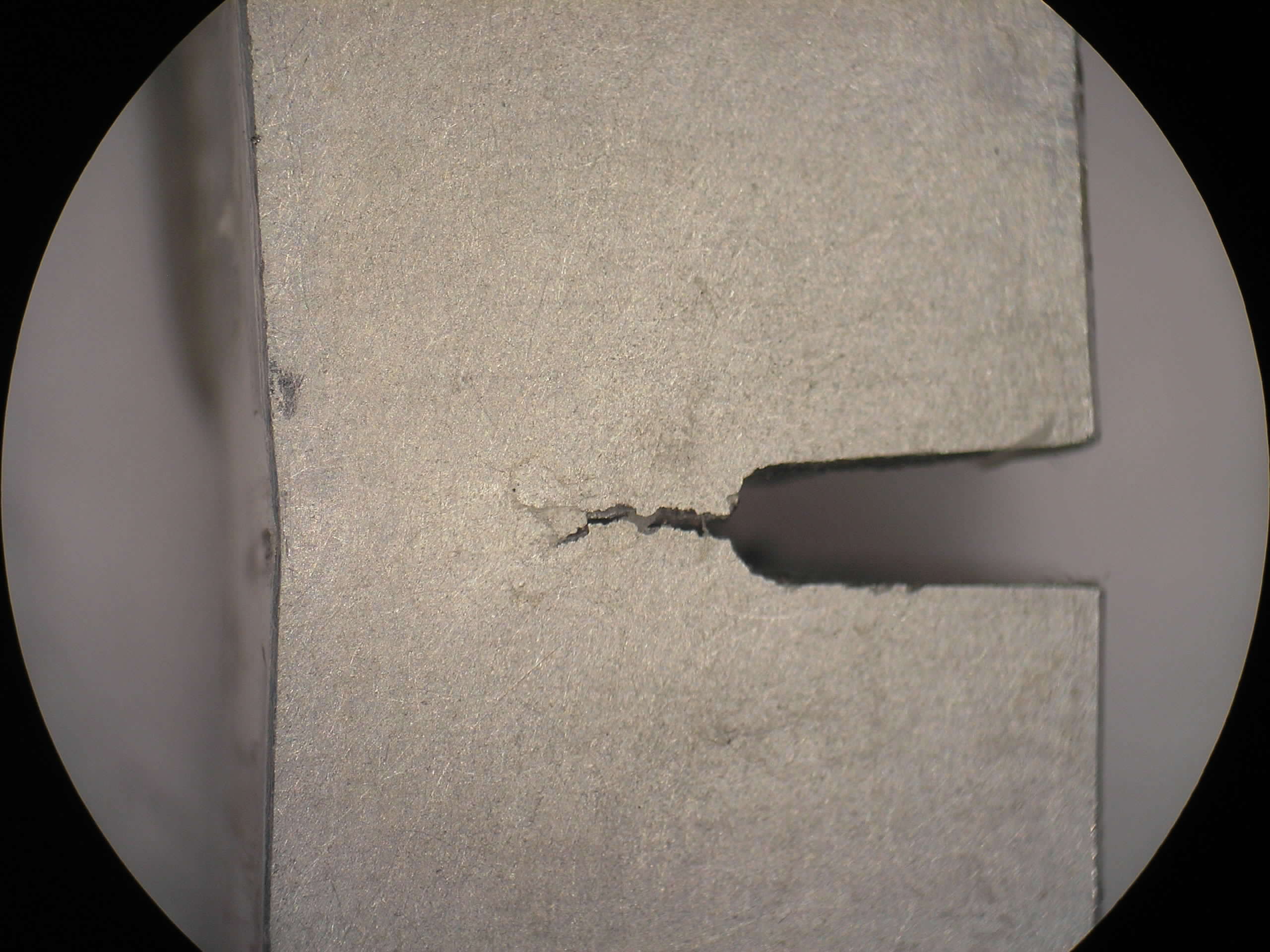ASTM G41 Fracture Testing under Corrosive Environments
The ASTM G41 standard is a critical tool used by quality managers, compliance officers, R&D engineers, and procurement teams to assess the fracture toughness of metallic materials in corrosive environments. This testing method evaluates how metals behave under stress when exposed to corrosive agents like saltwater or chloride-containing solutions.
This service focuses on understanding how different materials withstand environmental stresses that can lead to brittle failure. The ASTM G41 test is particularly useful for industries such as aerospace, automotive, and petrochemicals where corrosion resistance of metals directly impacts product longevity and safety.
The process involves preparing the metallic specimen according to specified dimensions and ensuring it is free from defects. The fracture toughness (KIC) is then measured using a compact tension (CT) specimen under controlled conditions simulating real-world corrosive environments. Specimens are placed in a chamber filled with the corrosive solution, where they are subjected to stress until failure.
Key parameters include temperature, humidity, and concentration of the corrosive agent, all of which can influence the results. The specimen's fracture surface is inspected for characteristic features indicative of brittle or ductile fracture behavior. This analysis helps identify potential weaknesses in material design that could lead to premature failure under operational conditions.
The ASTM G41 test provides valuable insights into the durability and integrity of metallic materials, ensuring they meet strict quality standards even when exposed to harsh environments. By understanding these characteristics early in the product development cycle, manufacturers can optimize their designs for better performance and reliability.
Industry Applications
| Industry Sector | Application Example |
|---|---|
| Aerospace | Evaluating the durability of fasteners used in aircraft structures exposed to salt spray. |
| Automotive | Assessing the resistance of engine components like valves and pistons to chloride-induced corrosion. |
| Petrochemicals | Determining the integrity of pipes and fittings used in offshore platforms facing seawater exposure. |
| Construction | Evaluating the performance of reinforcing bars in concrete structures exposed to de-icing salts. |
Customer Impact and Satisfaction
Our customers benefit significantly from our ASTM G41 fracture testing under corrosive environments service. By providing accurate and reliable test results, we help ensure that materials used in critical applications meet stringent quality standards. This leads to increased product longevity, enhanced safety, and reduced maintenance costs.
We work closely with each customer to understand their specific needs and develop a tailored testing plan. Our team of experienced professionals ensures that every aspect of the test is conducted according to international standards, guaranteeing consistency and repeatability.
Customer satisfaction is at the heart of our service delivery. We provide detailed reports outlining the results of each test, complete with recommendations for improving material performance where necessary. Our commitment to excellence has earned us a reputation as a trusted partner in quality assurance within various sectors.
Use Cases and Application Examples
In aerospace applications, the ASTM G41 test is essential for verifying the robustness of fasteners used in aircraft structures. These components must withstand harsh environmental conditions without compromising structural integrity. By testing these materials under simulated corrosive environments, we can identify any potential weaknesses that could lead to premature failure.
In automotive manufacturing, engine components such as valves and pistons are subjected to high levels of stress and corrosion from chloride-containing coolant fluids. Our ASTM G41 tests help ensure these parts maintain their strength and durability over the entire lifecycle of a vehicle.
For petrochemical facilities, offshore platforms that use pipelines exposed to seawater require materials capable of resisting chloride-induced corrosion. By performing ASTM G41 fracture testing on these materials, we can confirm they are suitable for long-term operation in such demanding environments.





